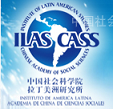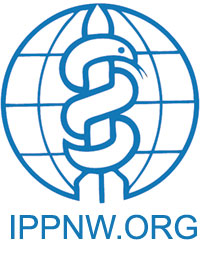Obituario
Cristina, celebramos tus semillas
Camarada María Cristina Torterolo Pérez, 23 de
enero de 1954 – 26 de octubre de 2025
A riesgo de molestar a Hegel, ¿habría acaso
algo más bello en el mundo que la sonrisa de una mujer comunista enamorada, de
pensamiento enamorado por las causas justas de la clase obrera e inmersa objetivamente,
además, en un caso particular de la dialéctica como lo es la dialéctica de la
sociedad burguesa?
Las semillas del comunismo que el Partido
siembra y que militantes revolucionarios como Cristina esparcen orgánicamente,
a partir de lo causal y lo necesario, se vuelven árbol de flores fértiles —para
Lenin, siendo que es algo que se observa en la historia, así lo conjetura al
menos en uno de sus artículos[i] en
la revista Bolchevik, es vital el hecho político de saber afrontar la
pálida concepción del desarrollo de la lucha de los contrarios como mera
«repetición», a partir del necesario dominio tanto del sentido de la unidad condicional
o relativa de los contrarios, como de su lucha absoluta, en que se excluyen
mutuamente y se relacionan—.
A la camarada Cristina, tanto se le daba el
mote de «Cris», como el de «Tina», o el de «Negrita» (dependiendo de los grados
de intimidad que se alcanzasen, siendo que el de más alto grado sería, y que
más atesoraba, el de «Mi muñequita de trapo»).
El árbol del comunismo posee terreno firme (un
suelo forjado de la acreción de los productos del trabajo y sus mundos), un
suelo dado de oposiciones concretas, para arraigar sus raíces gnoseológicas y
crecer como árbol vivo, poderoso, del conocimiento humano.
En la biblioteca de Cristina se hallan las
obras completas de Lenin, leídas y estudiadas de tiempo en tiempo (una sala
abierta además a los camaradas; un hogar de puertas abiertas en su localidad
del Cerro montevideano, en la cooperativa de viviendas por ayuda mutua de
trabajadoras domésticas que fundara y que orientara resueltamente en sus
relaciones institucionales a una concepción clasista de la definición de los
problemas).
Antes de eso, a poco de iniciada su militancia
en el cooperativismo de la FUCVAM, al ser desalojada de una vivienda de techos
de láminas de calamina que arrendara por Villa Sayago, debió desplazarse al
albergue nocturno Pablo VI en la localidad del Cordón (una obra social
católica, en la que personas profundamente cristianas le brindaron dónde
guarecerse a mujeres y a varones en situación de calle; al no ser mixtos los alojamientos,
y por esa causa, debería separarse momentáneamente de su esposo y compañero de
vida). No era igualmente su primer desalojo. En aquel entonces las fuerzas progresistas
aún no habían alcanzado el gobierno ni se había generado una cartera de
desarrollo social, como tampoco se había aún alcanzado la oportunidad de un
relevamiento territorial a partir de otra cartera como la de vivienda (algunas
de esas cuestiones deberían esperar, para nacer a futuro con una primera
administración Vázquez).
En sus discusiones ideológicas, la definición
de un problema político se manifiesta como síntesis leninista; tanto en su
labor dirigente durante tres décadas en la secretaría de organización del
sindicato de los trabajadores de la enseñanza privada (SINTEP), a partir de la
Lista 1985 Por el camino de Julio Castro, y, siendo fundadora, a la vez,
del núcleo de la Escuela y Liceo Elbio Fernández de la Sociedad de Amigos de la
Educación Popular —donde trabajaría dedicándose al seguimiento administrativo
de la secretaría pedagógica de esa institución— como también en el acto
militante de extensas jornadas que dedicara al Partido y a su agrupación de la
enseñanza. Supo de la complejidad teórica de las relaciones políticas, como en
el caso en que siendo dirigente cooperativa y parte contratante en la
construcción de viviendas por ayuda mutua hubo que resolver un conflicto
laboral dado con los trabajadores sindicados en el SUNCA, a los que se
empleaba; de ambos lados de la mesa en la cartera de trabajo y seguridad
social, del lado empleador, como del lado contratado, había trabajadores
comunistas en disputa. Y supo que toda desviación ideológica que se produjera
en esas negociaciones sería alimento para el enemigo de clase, así como para el
estamento de burócratas oportunistas.
Proviene de un hogar de siete hermanos (cinco
mujeres y dos varones).
Vivían en un alojamiento típico de la Aguada,
no lejano al Palacio Legislativo, de gran patio abierto al que afluían las
habitaciones, así como el servicio de baños sin retrete y cocina y la
escalerilla al desván —algo de aquella arquitectura ha perdurado por la calle
Nueva Palmira—. Luego de recorrer un extenso pasillo, a la manera de una crujía
a cielo abierto y de paramentos desnudos, se llegaba a la entrada (unas puertas
de doble hoja desvencijadas y de sucesivas pátinas de pintura cascada).
Su madre, de una tez de invariable raíz negra,
pecosa y de cabellos pelirrojos, se dedicaría al trabajo doméstico en casas
pudientes.
Su padre, de fenotipo de piel pálido y de ojos
celestes, trabajaría en el puerto dedicándose a cuestiones de mecánica.
Cristina heredaría el carácter y los gestos de
su madre. Eso se volvería cada vez más notorio con el paso del tiempo.
Criaban al trastazo. Era una vida dura —sigue
siéndolo—.
En ese hogar de tantos hermanos se cumplía la
denuncia política de Lenin al mito capitalista y a la degeneración que provoca
de las relaciones humanas: No produzco pan para que tú lo comas, sino para
que tú lo compres. Y si no había dinero para comprar hogazas de pan, no
había pan. Al paso del tiempo, la propia madre de Cristina renunciaría al
pachequismo de los colorados y se pasaría a votar a la 1001; de anciana, aquella
obrera doméstica, ahora comunista, aprendería por primera vez en la vida a leer;
y leería la prensa partidaria y alcanzaba a rasguños, de manera incipiente, al
fin, el mundo de las categorías materialistas (ese maná bolchevique).
La camarada Cristina se opuso a los renovadores
del XXII Congreso y a su estratagema de voto secreto (a la reducción
improponible de la democracia interna partidaria a mera oclocracia). Así como se
opuso al revisionismo explicitado —no siendo otra cosa que un revisionismo
filosófico típico de abjuración del marxismo— en el interés tendencialmente
reaccionario que hubo de terminar con los conceptos leninistas de dictadura
del proletariado o del partido como vanguardia.
Rechazó que se tergiversara la necesaria
discusión política del mundo socialista, el trastocamiento en su objeto de
análisis. Rechazó que se desplazara el trabajo teórico a una pasarela pública de
dimes y diretes y hasta de amarillismo de las diferencias internas de
interpretación del hecho político, donde parecerían primar las veleidades y los
personalismos antes que la tesis arismendiana de conducirse a la necesaria
interrelación dialéctica entre la etapa de liberación nacional y la socialista.
Aquellos olvidados renovadores no se
habrían percatado de que la contrarrevolución existe como efecto del fenómeno
revolucionario (el conocimiento no es una línea recta, otra vez, es Lenin quien
insiste en esto, sino una espiral de innumerables matices en el modo de abordar
la realidad del problema). No atenderían que también surgió en el período de la
reacción stolypiniana, durante la cruda represión zarista, entre un
sector de intelectuales del partido Obrero Socialdemócrata Ruso, un alejamiento
del marxismo tras de la derrota de la revolución de Lenin en el arco histórico
de 1905 a 1907, aunque de aquel proceso político harían síntesis última los
bolcheviques en detrimento de los mencheviques. ¿En qué triste socavón de la
historia han quedado aquellos renovadores del Partido? En un precoz
parafraseo de Lenin, respecto de lo prologal a sus notas críticas a una
filosofía reaccionaria, podría mencionarse que pierden de pronto toda
audacia y todo respeto por sus propias convicciones cuando tienen que precisar
nítidamente su actitud hacia Marx y Engels.
A su vez, ante la insistencia en posteriores
delirios de intento de liquidación del marxismo-leninismo a partir de la
generación de una estructura nueva como partido del socialismo democrático,
la camarada Cristina se integró a toda una pléyade de comunistas que por vía
estatutaria (de recolección del diez por ciento de firmas ológrafas de
afiliados) exigió la formalización de un Congreso Extraordinario. Lo que
lograran aquellos militantes heroicos, verdaderos gigantes de la política
marxista, habidos en un comunismo al borde mismo de no poseer Partido, sin
duda, deberá tratarse como un hito en la contribución a la orientación teórica materialista
del proceso revolucionario nacional (aunque este escopo ha sido reducido por la
politología universitaria a relato seudoetnográfico, sin validez historiológica,
e incluso anclado en la estupidez supina, en algunos casos, en cuanto a las
conclusiones formuladas de ese producto político). Al decir del científico
comunista Massera en el XXIII Congreso, ante una dirección que traicionaba y
abjuraba del marxismo-leninismo, hubo una rebelión de la base. A la vez que
afrontó las asperezas partidarias (asunto que también refractaría en el alcance
de una política de alianzas con el mundo frenteamplista y progresista), la
camarada Cristina también sabía necesario que debían afianzarse fraternalmente
las relaciones políticas en el mundo sindical y sus movimientos sociales de
convergencia.
En lo particular de su lucha orientada a la
organización de la clase trabajadora, afrontó a su vez y en carne propia el
problema de la persecución política o del cretinismo faccioso (a instancias de
la generación de su núcleo síndico en el Elbio Fernández hubo movimientos
reaccionarios de la patronal acosándola para que desistiese de la defensa del
derecho laboral, o en su cooperativa de vivienda donde grupúsculos anclados en
el anticomunismo o el comunitarismo pretenderían amedrentarla porque fundamentaba
la existencia de irregularidades como el multar a un socio por no asistir a un
acto de movilización de la FUCVAM, siendo que no-asistir es un derecho de
decisión, o la falta de control efectivo en el capital de horas trabajadas, y
no encontrarían mejor respuesta que demandarla por haber plantado casuarinas en
su jardín, incluso propusieron expulsarla mediante tecnicismos estatutarios
aunque un tribunal de apelaciones falló contra el sinsentido jurídico de ese
dislate).
En el marco del SINTEP y de su lista 1985, de
la CSEU y del PIT CNT, así como de su militancia cooperativa, nunca negociaría a
partir de cargos; se trabajó una y otra vez el acuerdo político en condiciones
programáticas. En el obrar de su representación política se interpelaba a la
hora de tomar decisiones; sus relaciones interpersonales y orgánicas, además,
las asumía como un objeto de imagen moral. Era perspicaz a la hora de negociar
un conflicto, en lo bipartido o con intervención de la cartera de trabajo y
seguridad social. En oportunidad que la representación de la patronal del Grupo
16 Enseñanza Privada (tanto la AIDEP como la AUDEC) dijesen una vez instalada
la mesa de discusión salarial que sólo se atendrían al cumplimiento del
laudo, Cristina les mencionaba entonces para qué estamos aquí, si total
el laudo es ley.
La camarada Cristina supo ser un verdadero animal
político (en el preciso sentido aristotélico que este filósofo sabio
tratara como hilemorfismo, en el de ese ser humano que se relaciona con los
problemas interrogativamente para alcanzar, en el ejercicio de la definición,
los productos de la razón). Se tornaba una fuente personal continuada de
consulta, en cuanto al registro histórico-institucional y el sentido ideológico
de un proceso de organización. Hablaba y organizaba. Decía y hacía. El sentido
gramático se expandía —en symploké— al sentido de responsabilidad
política. Era fundadora de organización, donde estuviese, y sabía pensar a
futuro la relación de los problemas referenciándolos a un mundo clasista (verdaderamente
ejercía una semiótica de la imagen prospectiva).
De joven aprendería arpa (la que es de versión
diatónica, un instrumento músico modificado por las misiones jesuíticas
guaraníes). Un maestro de música paraguayo —de quien aprendería alguna
pronunciación guaranítica, modesta— la iniciaría honorariamente en el mundo
instrumental. Mantuvo sus manos de dedos delgados de pianista toda la vida,
incluso luego de ser bautizada en el levantamiento albañil de su hogar. Sus
delgadas manos —tal como lo dice la letra del folclore— parecen pájaros en
el aire y lo cotidiano, sí, en efecto, supo volverlo mágico. Representan
un cielo abierto.
Aquello otro, la labor de los ensayos o
preludios para fijar el tono, le abriría de alguna manera las puertas de las
salas de recepción de casas burguesas o de hogares de comerciantes acomodados
en la capital montevideana. Acaso esos discretos encantos de la conversación
dada entre cristalería y ornamentos de mármol, entre luces de lámparas
acampanadas, la inclinaría a estudiar por correspondencia el interiorismo en un
instituto barcelonés. Era discretamente sofisticada. Una amiga española le
enseñaría el arte del maquillaje (incluso en la Cooperativa Magisterial en la
que también cumplió labor electoral y como socia, en alguna oportunidad
asistiría a conversatorios de visagismo). No comprendía el desarrollo de
las relaciones humanas y públicas sin un necesario dominio de definiciones
de la práctica estética.
La abrumaría enterarse que hubo en su
cooperativa de vivienda, en el proceso de edificación, un irreparable destrozo de
un vitral antiguo, de paisaje telúrico iluminado, y la penosa iniciativa de rellenado
de un aljibe de agua de lluvia como si acaso fuese el pozo de una fosa (también
sabía que todo proceso transformador no se halla exento de indiferentismo
ante la cosa si hay desconocimiento del mundo al que refiere; en la
metafísica racional esto se vería algo así como una falta de capacidad para
la experiencia). Se sobreponía a estos sucesos entre otras razones porque
orientaba pedagógicamente el ejercicio de sus relaciones políticas (después de
todo, la interpretación materialista del desconocimiento de la cosa en sí
no puede realizarse a partir del mismo desconocimiento; puesto que se requerirá
necesariamente, inicialmente, de un reconocimiento de la cosa para sí al
delimitarla e identificarla).
De joven la apodarían «Olivia», dada su
delgadez algo excesiva. En una de sus salidas de compras a la otrora tienda
Manzanares que abrazaba a la distancia a todo transeúnte con su aroma a café y
que perfumaba el propio mameluco de sus vendedores, aún niña, frente del
Mercado Agrícola, en un asalto a mano armada le apuntarían a la cabeza (no
serían delincuentes comunes sino un grupo foquista de los que pululaba en su
época).
Eran de su preferencia las flores de pétalos o
tépalos amarillos. Cultivaba rosas —y con su compañero de vida, jazmines—.
Metódicamente anotaba en el calendario anual las progresiones lunares. Incluso
llegaría a vender flores que adquiriría de a fardos recubiertos de arpillera u
hojas de periódicos de formato sábana embebidos en agua, en el barrio del
Reducto, a una comunidad de japoneses en el Mercado de las Flores, un recinto
techado que se mantenía a portón cerrado durante toda la madrugada hasta el
amanecer (su espera consistía en un capuchino acompañado de cruasanes,
escalinatas arriba, en el entrepiso de la cafetería).
Siempre hallaba una oportunidad para
redecorar. A los paños de cocina les zurcía lepidópteros imaginarios, o violetas
africanas. Recuperaba la madera vieja de muebles y empapelaba por dentro sus
anaqueles o montantes.
Optaba por lámparas antiguas opalescentes de
segunda mano.
Su bisutería resultaba innumerable (collares
de cuentas o con gargantilla, pendientes en general del tipo earcuff, de
aros, redondos, o del tipo stud, y nunca colgantes, algunos pocos prendedores
entre los que resalta uno de diseño soviético de paloma blanca en el que se
inscribe la palabra baltoeslava rusa «мир» y que había pertenecido a una incansable
bolchevique sayagués, así como pulseras de puño, de brazalete, minimalistas).
Gustaba de la gastronomía (sus libros de
recetas se hallaban repletos de enseridos para modificar o prolongar una
textura, un aroma). Vivía haciendo anotaciones en hojas sueltas o engrapadas.
Escribía, acerca de lo que sea; escribía
permanentemente. Decía: los papeles parece que se me reproducen —y quizá
aquello se debiese a que sus anotaciones se hallaban también en permanente
celo, como si hubiese que engendrar historia sin pausa y a cada segundo—.
Poseía habilidades de pastelera.
Algo de licorería degustaba, algo de martini,
nunca jerez, nunca cerveza.
Prefería el té en hebras secas. Y gustaba de
la miel, antes que del azúcar.
Nunca le faltaban frutos secos (debía haber
almendras y nueces).
No toleraba el humo de tabaco —y poco, solo lo
necesario, a los fumadores—. En otros tiempos, la humareda le hacía padecer y
toser la orgánica partidaria o sindical. En vez de humanos, solamente veía
locomotoras a vapor que hablaban.
En general, no traducía sus relaciones
políticas a relaciones de amistad (salvo excepciones contadas con los dedos de
una sola mano).
La placían los perfumes, las aguas de colonia,
los aceites y sus emulsiones.
En cuanto a lo melódico, se inclinaría a
escuchar la interpretación de poemas de autores uruguayos o de otras
nacionalidades, y en múltiples géneros, como las de gallegos, cubanos,
ingleses, brasileños. Aunque no se le encuentra una línea de continuidad; hay
variaciones según épocas. A la manera de un rango, no iría más allá de The Beatles
ni tampoco más allá de Taddei y sus variopintas experimentaciones en el arco de
su intensa voz femenil. Nunca se la escucharía cantar o tararear; salvo alguna
contada vez, o para provocar una parodia que desarrollara como madre buena y
con un niño a quien debía entretenerse, especialmente con una única zarzuela
del siglo XIX que era La verbena de la Paloma: «¿Dónde vas con mantón de
Manila?». Así lo iniciaba. Y luego de inmediato agregaba en canto su
tergiversación provocada de la letra —mientras ordenaba trastos de cocina, o se
hallaba sumida en otras faenas—: ¿Dónde vas tú con él, o sin él? Yo me
voy, yo me voy, a la esquina. Qué te importa lo que voy a hacer… Hermoso recuerdo
para el corazón de un niño, ahora con sensación a orfandad.
No practicaba la caridad o la filantropía.
Escuchaba. Ayudaba. Compartía. Era una comunista samaritana.
Sonreía de manera hipnótica (las risotadas en
cambio no parecerían acordes al rigor de su neuma que no sabía o no quería manifestarse
exaltado).
Su caja de herramientas y artilugios de
ferretería en el hogar le permitía resolver múltiples bricolajes, poco
importaba acerca de qué tratase el percance.
La absorbía la cinematografía iraní y la
aridez suave de su relato, así como lo deletéreo de sus moralejas ciertamente no
aptas para desprevenidos. La cinematografía rusa la alimentaba, quizá más que
el pan de cada día, aunque la raíz de esto se halla sin duda en la lectura de
los clásicos rusos donde sus personajes existen impregnados de realidad.
La Revista Estudios, en cuestiones de
ideología comunista y análisis progresistas del mundo, así como la Revista
Voces, en lo referido a asuntos pedagógicos, eran de sus lecturas de cabecera.
Otros productos editoriales serían en todo caso de revisión esporádica. Propagó
la prensa partidista.
Leía y estudiaba con avidez toda documentación
política que se le alcanzaba.
Extrañó la desaparición de la radiofonía partidaria
y la impronta de La 30. Extrañó la dilución de las radionovelas. Su
generación notaría profundamente esas ausencias de sentido.
El voto verde fue un antes y un después
en su aventurada vida; le resultó una fogata de amor, en que hubo de resurgirse
de las cenizas. Resultó un dolor punzante en la mente de quien se hallaba
resueltamente abrazada a las humanidades del mundo. Igualmente creyó en su
pueblo. Lo lloraba. El odio de clase —siendo que no trata de una mera
pasión cartesiana— es una forma del modo clasista en que se radica la lucha
política, de la que por supuesto debe hacerse síntesis. La muerte de los
camaradas, la sola insinuación de sus huesos, la hacía sonreír y llorar futuro.
Estaba enamorada del futuro. Ascendería la escalinata de la Universidad de la
República (luego un exrector la tomaría gentilmente del brazo en su descenso
momentáneo), en la explanada, para rendirse ante el camarada Ubagesner: el
primer comunista resucitado, la primera semilla iluminada, el gran varón que de
las ideas hizo carne. Acaso, debido a esto, es que el ser comunista es estar intensamente
vivo en la vida.
Y si de un antes y un después se trata,
la ocupación del Colegio Nubarian por parte del SINTEP a causa de los despidos
que se dispuso generar y la reducción de las horas de trabajo, siendo un
instituto de enseñanza arraigado a las tradiciones más valiosas y emblemáticas
de la prestigiosa comunidad armenia del Uruguay, resultó en una especie de batalla
de Hayk contra Bel y en el que la camarada Cristina era su dirigente
sindical de organización. El conflicto síndico contra una patronal desordenada
se tornó en agenda nacional e incluso agenda parlamentaria. Era la primera vez
que un instituto de enseñanza privada en la historia del territorio nacional se
ocupaba con reivindicaciones gremiales, y esto incluye los tiempos referidos al
gobierno del Cabildo de Montevideo que tenía por potestad autorizar las actividades
de aprendizaje privadas durante el período colonial. Luego de aquella gesta, otro
fue el cantar.
Ahora, la labor de proponerse afirmar el
comunismo orgánico de Cristina, a la vez, implica —y para evitar formas de
perplejidad que podrían llevar a nociones huecas— algo así como una necesidad
de adjetivación.
Era una comunista pro feminista. Asumía que el machismo (la imprudencia de ir del pensamiento y de la sensación a las cosas), siendo una variedad del idealismo confuso, y, la actitud del machismo ante las ciencias naturales donde el mundo es apenas nuestra sensación, es una cuestión empiriocriticista. Y que por tanto una concepción antimachista ha de ser un producto leninista. Asumía que el verdadero feminismo es una conclusión política leninista. Las formas del ser [acaso los principios de existencia del ser mujer] no las puede el pensamiento extraer y deducir meramente de sí mismo, sino únicamente a partir del mundo exterior. Valga este parafraseo vulgar y rellenado que en estas anotaciones de obituario se extrae del sabio Lenin. La idea [o idea de mujer], la imagen de mujer, sus principios de existencia, no son lo que rige ni la naturaleza ni la humanidad en que es dada; no es que se aplica un sentido de mujer a una naturaleza de mujer. La idea de mujer es verdadera si concuerda con la naturaleza y con la historia de cómo es que existe. Definir como idea, o resultado final, lo que la mujer es (en tanto refiere a una abstracción de su naturaleza o humanidad) no se resuelve con meros elementos psíquicos, sino a partir de lo primario que es la materia en relación a lo secundario que lo es la conciencia, el pensamiento, la sensación. O, en las condiciones de una relación interrogativa, la concepción de lo que es ser mujer implica saber de múltiples realidades en relación o de múltiples totalidades a la vez dadas: ¿cuáles son las condiciones de vida de la mujer explotada según su nivel de estudio?, ¿cómo se halla concretado su acceso al trabajo remunerado, a las prestaciones sanitarias, al ocio?, ¿qué institucionalidad genera condiciones de exclusión política y retrograda su alcance de cargos dirigenciales o de representación?, &c.
Era una comunista pro vareliana que orientaba
sus estudios a las formulaciones del filósofo y dramaturgo Yáñez y del maestro
Rodríguez, especializado el primero en las cuestiones de la educación popular, y
el segundo en la historia de la política educativa nacional, siendo
radicalmente contraria a los modelos de municipalización de las enseñanzas, opuesta
a la privatización indiscriminada de la educación inicial, decididamente crítica
de la implementación de nematologías institucionales en el mundo educativo
tales como las de la «calidad», o la de los «recursos humanos», solipsismos,
finalmente, solamente provocadores de catacresis y confusión política (le
preocupaba que hasta el discurso izquierdista proclamase como flámula la «calidad
educativa», un mero artilugio administrativo organizacional del neoliberalismo
que proviene además de un anterior ordoliberalismo que ordena las oportunidades
de mercado, siendo que con esto hasta se revolcarían en su propia tumba tanto Sócrates
como el maestro antifascista Castro, dado que aunque uno idealista clásico y el otro
pedagogo izquierdista, de todas maneras, ambos igualmente coincidentes en que la
principal función del docente es política, a ambos además la defensa de
este principio les costó la vida, y con una diferencia de veinticinco siglos
entre uno y otro, a uno a manos de la Heliea que lo envenenó y al otro a manos
de agentes fascistas que lo torturaron hasta la muerte en el centro clandestino
La Casona). Resultó una defensora acérrima de la Educación Pública.
Era una comunista pro arismendiana que
rechazaba el sectarismo político. Celebraba la separación batllista que la
República concretó entre el Estado y la Iglesia Católica Apostólica Romana.
Celebraba el sentido republicano que impregnó el obituario de Batlle y Ordóñez,
el dedicado al prócer comunista ruso y titulado De pie, ha muerto Lenin
(a quien consideraría este dirigente colorado un magnífico ejemplar humano;
y de personalidad apasionante). Incluso procuraría atender las
razones del ecumenismo entre las múltiples realidades del pueblo uruguayo en
que se irradian relaciones de fe, no negaba la pertinencia social de las
creencias o los actos de sublimación o éxtasis del Gran Carpintero, tanto
deseaba felices pascuas o navidades (algo propio de religiones de tercera
generación o categoriales) como disfrutaba a su vez de la fe de las flores y
chocolatinas ofrendadas a Iemanjá y que la mar envolvía en su magnesita (lo
propio de religiones de segunda generación o totémicas o animistas), aunque
igualmente rechazó la reducción de la fe a lo ultramontano, al senequismo, o a
la visión quiliástica o milenarista del mundo. Sabía que la religión es el
opio de los pueblos en aquellos casos en que en vez de dedicarse a que Dios
salve la razón se subsumen en teúrgias (como las provocadas por la iglesia
católica al perseguir brujas, o al anquilosarse en el cristomorfismo
del varón como problema moral que aprendiera de las lecturas que realizó del
padre Pérez Aguirre en su obra La Iglesia increíble). Sabía que
los comunistas tal como lo afirmara Arismendi nada tenemos en contra del
sermón de la montaña. Es más, ante la muerte del sumo romano pontífice
Wojtyla —acérrimo enemigo de la revolución soviética en Europa, así como
opuesto a la teología de la liberación y al movimiento sandinista en América,
aunque mantenía especial amistad en el Círculo de Roma con un filósofo polaco
comunista que era Schaff y acaso, entre otras cosas, es posible imaginarlo, quizá
por eso mismo es que también alcanzaría la santidad como san Juan Pablo II—
tuvo la iniciativa política de presentar a nombre del SINTEP una carta luctuosa
ante la patronal de los colegios católicos (AUDEC), luego de lo cual un
conjunto numeroso de trabajadores católicos de la enseñanza privada se
afiliaron sindicalmente, integrados así al Grupo 16, y, la propia patronal, ahora
dirigida por un clericalismo porteño de poca flema, al menos cambiaría la
elocución de su discurso antisindical —se impondría menos grosero—. Era, si se
quiere, un pequeño terreno ganado en el mundo de las relaciones políticas de
clase. Aquello resultó una operación política y de sentido de oportunidad
sencillamente maestra para realizar síntesis del proceso en la relación
obrero-patronal. En aquella nota por la muerte del papa polaco se formuló el
conduelo ante el dolor de los trabajadores católicos del mundo, haciéndose
referencia a una imagen del pontífice que era de sentido paulino (finalmente,
la dada por obra de un ex perseguidor imperial de míseros cristianos), a partir
de un ejercicio de sindéresis que este apóstol brindaría a los tesalonicenses
en una segunda epístola: Estudiadlo todo, retened lo bueno. Este acto
ecdótico por otra parte también lo cumple el trabajador comunista en sus
anotaciones políticas. También rechazaba la actitud sectaria del puritanismo en
el desarrollo de las relaciones humanas y públicas del Partido, renegaba de la
moralina en las realizaciones del carácter sexual de la persona (le resultaba oprobioso
que la «heterosexualidad» acaso debiese ser una exigencia estatutaria; siendo
un asunto que preocuparía claro que sí a Engels en El origen de la familia,
la propiedad privada y el estado, quien entendía que la práctica sexual
entre varones es uno de esos feos vicios contranaturales y lo refería a
los germanos que tomarían de unos nómades cercanos a las estepas del Mar Negro
ese comportamiento, según los testimonios que asume de Amiano en el siglo IV acerca
de los taifalienses y el Procopio en el siglo VI que narra esto mismo respecto
de los hérulos, pero definitivamente no es un asunto que le quite el sueño a
Marx y menos a Lenin, aunque sí posteriormente lo atendería Stalin con una
política sexual restrictiva).
Era una comunista pro soviética que no
denostaba de los logros de su socialismo ni de la política estalinista de
industrialización, la que lograra saltar —y en pocas generaciones, además— de
una sociedad semifeudal a otra propiamente inmersa en la carrera espacial. Esto
resultó algo verdaderamente inusitado en la historia de la humanidad (en el
siglo XXI incluso la clase burguesa rusa confirma la necesidad de reestalinizar
la política industrial de la federación).
Era una comunista pro castrista y admiradora
del internacionalismo cubano, puesto que su lucha de clases no resultaba
subsumida a una cruda lucha de instituciones (dado que en los casos que esto no
se evitaba, y en el mundo asiático no se evitaría, se volvía posible entonces
la atrocidad de una conflagración entre países socialistas como en el suceso del
siglo XX sino-vietnamita que duraría poco más de tres semanas interminables). O
incluso podría provocar una divergencia ideológica de interpretación del propio
hecho político, algo poco más que alucinante, como ocurre en el siglo XXI
respecto del caso de guerra habida entre la Federación de Rusia y Ucrania,
donde el comunismo griego denuncia una invasión rusa y el Partido
Comunista de la Federación de Rusia mediante tesis debió aclarar que se trata
de una guerra de liberación nacional que se gesta en contra del
neonazifascismo instaurado en Europa mediante la OTAN harto especializada en
asesinar a población civil, siendo un conflicto en el que se encuentran incluso
soldados comunistas y cuadros de su partido ahora masacrados en batallas de
desgaste para desocupar su Donbass de nazis y fascistas. Admiraba los informes
de política internacional del camarada Coira —un investigador y asesor
gubernamental comunista— y se extasiaba con sus análisis teóricos (aunque
reconocía que en la sala de la sede central del Partido en que se disponía,
reclinado en un sofá, a leer un material de estudio, a ensayar una ponencia, o lo
que fuere, al ponerse ópera como acompañamiento, todo el mundo se retiraba y lo
dejaba solo). La camarada Cristina lograría acordar con este académico el
desarrollo de disertaciones acerca de la etapa radical del movimiento
emancipatorio artiguista, a desarrollarse en la cooperativa de vivienda por
ayuda mutua de trabajadoras domésticas en que militó. Es a partir del camarada
Coira que le nace la curiosidad teórica de estudiar el pensamiento de Schaff y
la experiencia polaca del socialismo. Se preocupó por estudiar el problema
sudafricano del apartheid, siendo que en su tiempo poca bibliografía en
lengua española lograría compilada. Admiró el internacionalismo del ejército
cubano como fuerza libertadora que colaboró en el aniquilamiento definitivo del
gobierno supremacista que a Mandela mantuvo durante casi tres décadas como
preso político (entre tanto que variadas administraciones estadounidenses lo fijarían
neciamente en la lista de terroristas, hasta que fuera anulada esa
demencia diplomática por Obama). Últimamente confirmaba, otra vez, la tendencia
a la maldad cartaginesa a la que se inclina el sionismo antisemita
israelí (algo que los comunistas israelíes y el progresismo palestino,
asociados en sus posibilidades objetivas y tradiciones, procuran contrarrestar
con una estratégica generación de organización revolucionaria).
Era una comunista desvergonzada (en el
sentido aristotélico), no promovería el carácter humilde en el trabajador que
dice y exige sus derechos a quien lo oprime; exigía la magnificencia política
—no hay lugar a la humildad ante el enemigo de clase, o en una mesa de
negociaciones con la representación de la patronal; desatender esta premisa
interpersonal del comportamiento, algo así, sería una total falta de cautela o
mesura, una verdadera imprudencia, una mala actitud política notoria—. Nadie
puede exigirle finalmente a un comunista que sea vergonzoso (Aristóteles
sostendrá que la vergüenza no es admisible en el comportamiento adulto).
Aristóteles es quien dirá propiamente que no se debe ser humilde sino
magnificente.
Quizá debido a lo que se denomina desviación profesional, todo proceso político y acto militante en el que interviniese la camarada Cristina en grado de representación era manifestado mediante registro documentario. Esto, de alguna manera, genera un «archivo Cristina» del que correspondería registrar aspectos de composición relativos propiamente a sus documentos, a los detalles de producción, al formato de la información (principalmente papel), a su medio, así como a la conexión posible entre tales materiales de estudio. Esto, claro, excede las posibilidades del obituario y la arqueología de relaciones a que referiría. Así que apenas se esbozan en esta oportunidad (a la manera circular), algo así como totalidades de contenido sin una cronología resuelta. Hizo registro de investigaciones acerca de aquella retórica neoliberal que se orientara a la propagación de la calidad total especialmente aplicada a proyectos educativos (resalta el tratamiento de Tomaz Tadeu da Silva). Se halla el registro señalado de temas del I Congreso Nacional de Educación Intercultural, desarrollado tanto en el Salón Azul de la Intendencia de Montevideo como en la Escuela y Liceo Elbio Fernández (sectores Canelones y Maldonado), siendo que hizo hincapié temático en módulo cuatro (Vivenciando la Interculturalidad) y en el registro de determinados ejes temáticos y disertantes. Tiene hemerografía relativa al acuerdo educativo generado mediante la cartera de educación y cultura durante el servicio ministerial del científico Ehrlich y sus cuarenta y dos medidas a aplicar, así como material con subrayado propio referido a la conferencia El desafío de integrar calidad y equidad educativa – Los aportes de Fe y Alegría dada en Universidad Católica (la fundada a partir de la administración de facto Álvarez Armelino, el Goyo, en sus estertores), o registros manuscritos de calidad educativa o de educación relativos al Banco Mundial, a estudios de Varela, al informe del SINTEP al Congreso del PIT CNT acerca del proceso de desprestigio de la educación pública gestado, a casos de intervención sindical como los de la AEBU o del SUNCA, a anotaciones de Gramsci del actuar de la fiscalía del fascismo italiano en cuestiones de enseñanza, a la política imperialista a implementar en los sistemas educativos latinoamericanos y caribeños en los documentos secretos de Santa Fe, u otros manuscritos acerca de la conferencia de Rosa Blanco en carácter de experta de la OEI en cuanto a metas educativas, anotaciones relativas a estudios del filósofo material Gustavo Bueno atinentes a enseñanza y religión, &c. Hay una carpeta de Comisión de Educación del PIT CNT que reza lo siguiente: «Merece quedarse así esta carpeta x su contenido», siendo que incluye material manuscrito, informes de CONENFOR, la mesa redonda generada por el SINTEP en relación al problema pedagógico de imponer «calidad» en la física social de los subsistemas educativos (destaca en esto el informe descriptivo de Seni Pedretti), valga destacar que en ese encuentro se hallaban como oyentes investigadores de la talla de Soler o Yáñez. Manuscritos acerca de declaraciones televisadas de Garibaldi acerca de las cinco dimensiones de la calidad que brindaría la UNESCO. Se tienen actas de Comisión Fiscal de la AFUTU con subrayados propios. Hay adhesivos propagandistas de la CSEU. Se tiene también registro impreso de un caso de indefensión docente y persecución en el marco de la SAEP, el que integra el expediente referido a su investigación y con subrayados propios y enseridos manuscritos. El registro es monumental, variopinto y continúa: el manual de cómo lograr evitar ser explotado, detalles de recibos pagados por núcleo, actas del Secretariado Ejecutivo, informes de Comisión Electoral del SINTEP, hemerografía relativa a Saludos de la Conferencia Episcopal a los trabajadores con manuscritos anotados a margen anverso, registro de propuestas para la definición de categorías en el Grupo 16, memorias e informes del SINTEP, documentos de la Sexta Sesión del Consejo Coordinador de la Educación en Primera Infancia con similares manuscritos anotados a margen, proceso al que se hallaba integrada la camarada Cristina formalmente al ser convocada, en el orden de los Educadores, por la cartera de educación y cultura (incluso su producción de material en torno al CCEPI podría ser asimismo una totalidad bibliotécnica en sí misma), estudios de doctrina jurídica aplicados a la cuestión Consejos de salarios de Loustaunau también con manuscritos propios enseridos, exposición de motivos para la Prima por antigüedad en la enseñanza privada. La andanada documentaria y de anotaciones personales ricas prosigue a raudales. No hay manera de determinarla, ni siquiera en sus aspectos generales. No; al menos no en este plano de registro.
Su cremación se realizó durante una tranquila
jornada matutina de jueves. En la primavera de un octubre casi finalizado; en
esa jornada matinal, parecía otoño —curiosamente su estación más preferida—.
No se fue sola, ni llorando. Hubo alegría, en
vez de reseca muerte como dice la letra de un canto. Hubo celebración de
sus semillas esparcidas. Una de sus últimas palabras: «Ayudame a despedirme».
Estuvo entre abrazos, hasta el último aliento. A los comunistas, el abrazo hace
bien.
Hasta siempre, Cristina.
Los comunistas estamos vivos. Te miramos en la
espiral de la historia.
Somos Partido in spe.
Pablo Pallas
Montevideo, República Oriental del Uruguay
[i] Cfr. «ENTORNO A LA CUESTIÓN DE LA DIALÉCTICA». Primera publicación en 1925 en la revista Bolchevik, núms. 5-6.
NOTAS Y ACLARACIONES ACERCA DE SIGLAS Y DE PERSONALIDADES REFERIDAS EN EL OBITUARIO, SEGÚN SU ORDEN DE FORMULACIÓN
1. Fragmentos de este obituario resultan citados por el periódico El Popular, órgano de prensa del Partido Comunista de Uruguay, en su sección Una flor roja para Cristina Torterolo.
2. FUCVAM
es la sigla con que se distingue la Federación Uruguaya de Cooperativas de
Vivienda por Ayuda Mutua. Es una organización cooperativa de segundo grado (una
cooperativa de cooperativas).
3. SINTEP
es la sigla con que se distingue el Sindicato de Trabajadores de la Enseñanza
Privada. La camarada Cristina Torterolo resultaría continuadamente electa para
su Secretariado Ejecutivo mediante la Lista 1985 «Por
el Camino de Julio Castro», así como en su núcleo síndico de
trabajadores —en el instituto privado Escuela y Liceo Elbio Fernández—.
4. SUNCA es
la sigla con que se distingue el Sindicato Único Nacional de la Construcción y
Anexos.
5. «Pachequismo»
es la denominación del movimiento reaccionario que desplegó Jorge Pacheco Areco
a partir de su presidencia de la República Oriental del Uruguay (1967-1972),
quien ilegalizó por decreto a grupos y partidos de izquierda, intervino la
autonomía de la enseñanza secundaria y técnica, restringió la labor síndica
obrera y las libertades civiles —permanentemente, mediante medidas
prontas de seguridad—. Los comunistas resultaron perseguidos por el
pachequismo, a causa del anticomunismo que los regía y la amalgama de distintas
manifestaciones de la oligarquía uruguaya en que convergía (el integrismo
católico, el conservadurismo ruralista, el liberalismo conservador, el
neoliberalismo, la influencia estadounidense en doctrina de seguridad nacional,
la guerra contrasubversiva, el respaldo a la política exterior imperialista).
6. «1001», como lista electoral, refiere a la coalición de izquierda fundada por el Partido Comunista de Uruguay, como bloque integrado a una coalición mayor de la izquierda uruguaya denominada Frente Amplio. La 1001 se rige por la conceptualización leninista de una «democracia avanzada» que el filósofo y dirigente uruguayo comunista Rodney Arismendi estudiase en su obra Lenin, la revolución y América Latina.
7. José Luis Massera fue un científico uruguayo comunista que integró la dirigencia del Partido Comunista de Uruguay durante la segunda mitad del siglo XX.
8. PIT – CNT es la sigla con que se distingue al Plenario Intersindical de Trabajadores – Convención Nacional de Trabajadores; es una organización síndica de tercer grado, es la central única de sindicatos de trabajadores uruguayos.
9. CSEU es
la sigla con que se distingue la Coordinadora de Sindicatos de la Enseñanza del
Uruguay.
10. AIDEP es la sigla con que se distingue la Asociación de Institutos de Educación Privada; es una organización síndica patronal.
11. AUDEC es la sigla con que se distingue la Asociación Uruguaya de Educación Católica; es una organización síndica patronal.
12. Refiere la mesa de discusión salarial a la instalación de los Consejos de salarios y negociación colectiva en la cartera de trabajo y seguridad social por rama de actividad laboral en el Uruguay, siendo que a los trabajadores de la enseñanza privada les corresponde el desarrollo de negociaciones como Grupo 16 junto a las cámaras patronales.
13, Cooperativa Magisterial es una cooperativa de consumo de trabajadores de la enseñanza; su sigla es COMAG.
14. La 30 era la denominación de una estación radiofónica del Partido Comunista de Uruguay que en su radiodifusión afrontó al gobierno fascista que tomó de facto el gobierno en el año de 1973.
15. Revista Estudios es una publicación del Partido Comunista de Uruguay de análisis marxista-leninistas de cuestiones relativas a las artes, las ciencias y la política.
16. Revista Voces es una publicación pedagógica de docentes uruguayos.
17. «Voto verde» refiere a un referéndum que convocó la organización social «Madres y Familiares de Uruguayos Detenidos-Desaparecidos» contra una reaccionaria ley de impunidad que hizo caducar la pretensión punitiva del Estado a favor de los fascistas que tomaron de facto el gobierno en el año de 1973.
18. Ubagésner Chaves Sosa era un metalúrgico comunista que las Fuerzas Conjuntas del gobierno fascista secuestró en el año de 1976, manteniéndose desaparecido hasta que en el año de 2005 su cuerpo es recobrado (siendo que resultó el primer detenido-desaparecido recuperado).
19. Varelianismo es una concepción pedagógica del siglo XIX que afirma que la educación popular en su etapa escolar debe ser laica, gratuita y obligatoria.
20. Ruben Yáñez fue un reconocido pedagogo materialista uruguayo comunista que orientó sus estudios a la dramaturgia y a la filosofía.
21. Hugo Rodríguez fue un académico y maestro uruguayo comunista que integró el grupo editorial de Revista Voces.
22. Julio Castro era un maestro antifascista que fue asesinado en un centro clandestino de detención.
23. Rodney Arismendi fue un filósofo y político uruguayo que dirigió el Partido Comunista de Uruguay durante la segunda mitad del siglo XX.
24. Daniel Coira era un académico comunista experto en análisis político internacional.
25. CONENFOR es la sigla con que se distingue el Consejo Nacional de Educación No Formal.
26. Seni Pedretti participó del encuentro del SINTEP como experto docente izquierdista e integrante de la Unidad de Educación del Frente Amplio.
27. Miguel Soler era un pedagogo antifascista que colaboró en el Uruguay con la cartera de educación y cultura.
28. AFUTU es la sigla con que se distingue la Asociación de Funcionarios de la Universidad del Trabajo del Uruguay.
29. SAEP es la sigla con que se distingue la Sociedad de Amigos de la Educación Popular que rige la institución privada de enseñanza Escuela y Liceo Elbio Fernández.


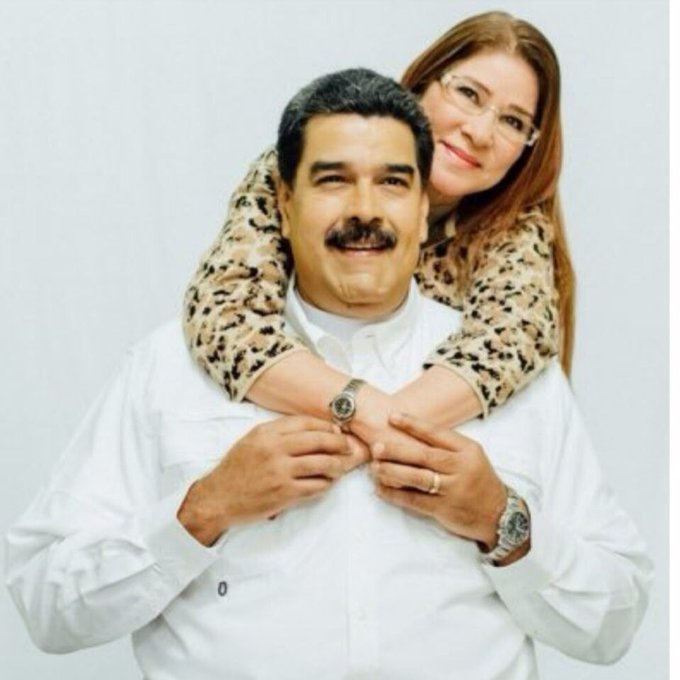










.png)


























.jpg)





.png)














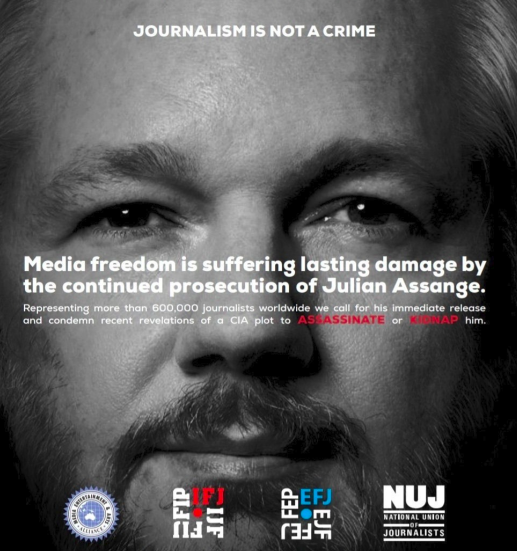




.png)





















.png)

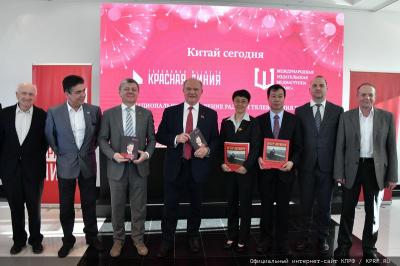

.png)


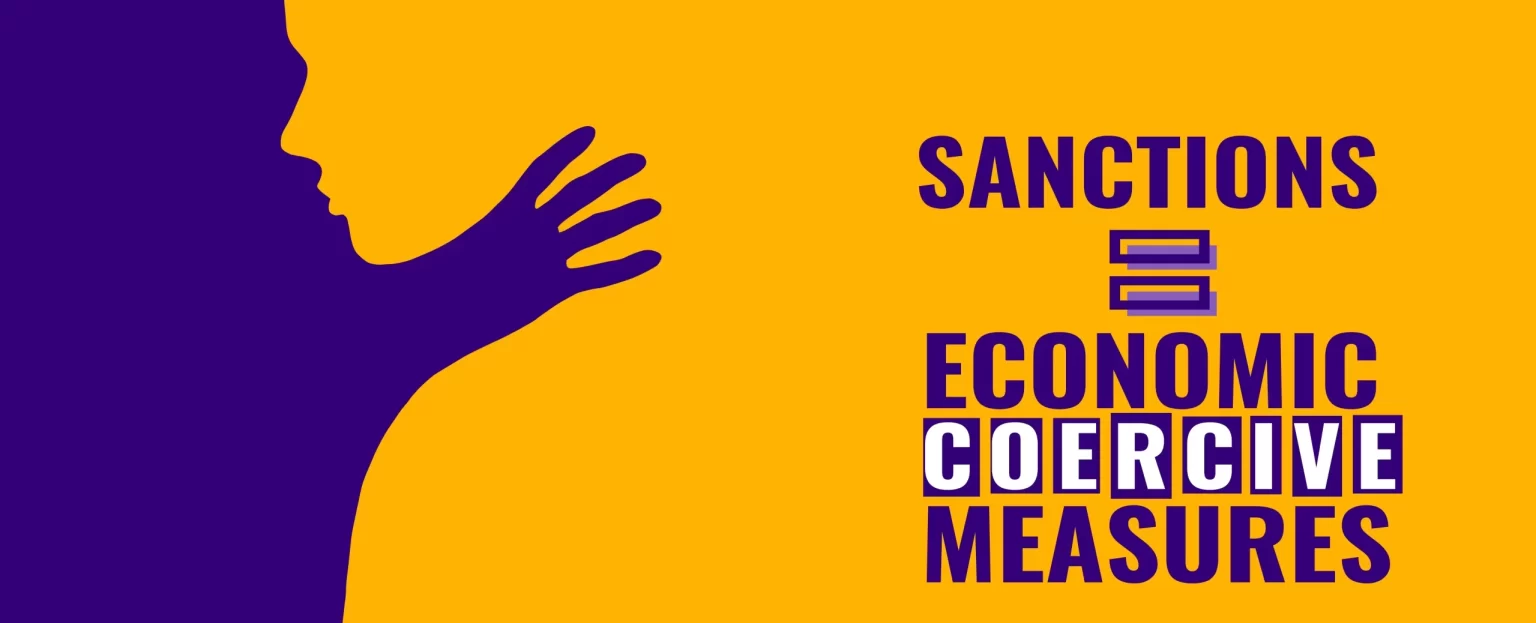

.png)
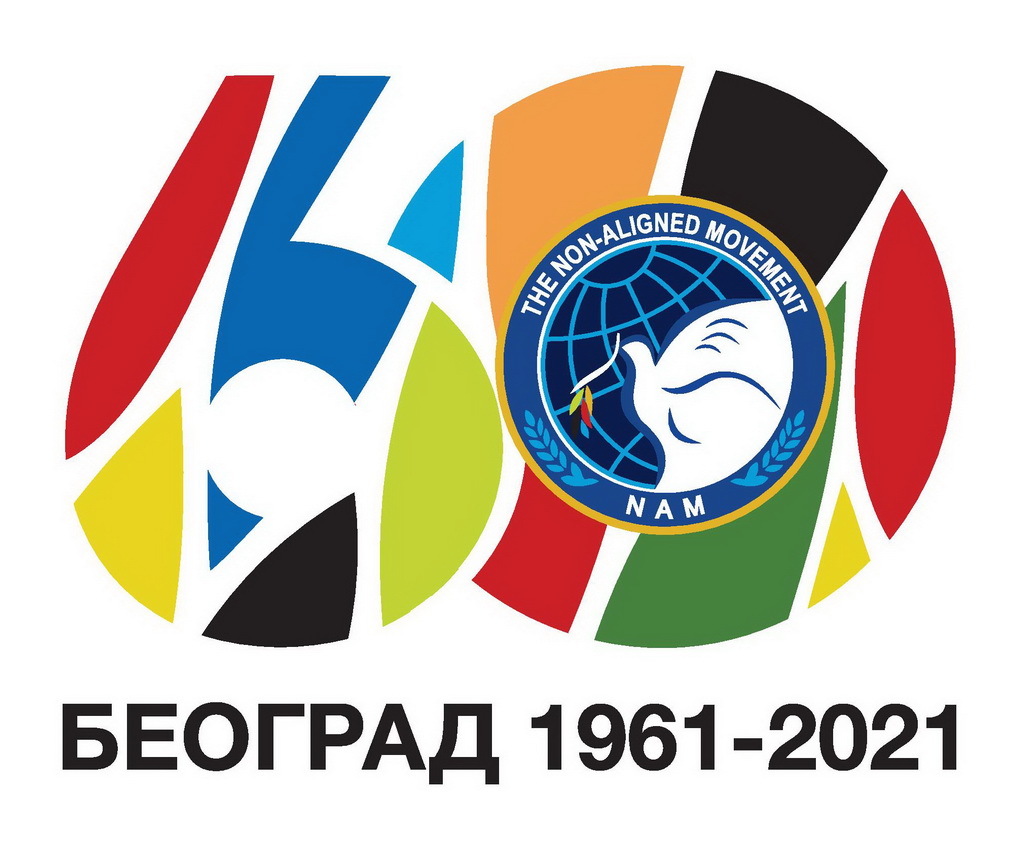




.png)





























.png)
/regions/2022/04/21/6261763fc435e_logo-candidatecml-page-0001.jpg)



.jpg)















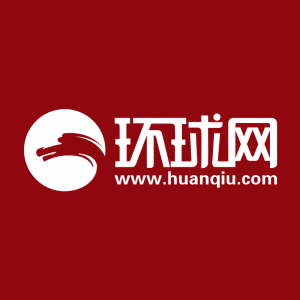


.png)

.png)
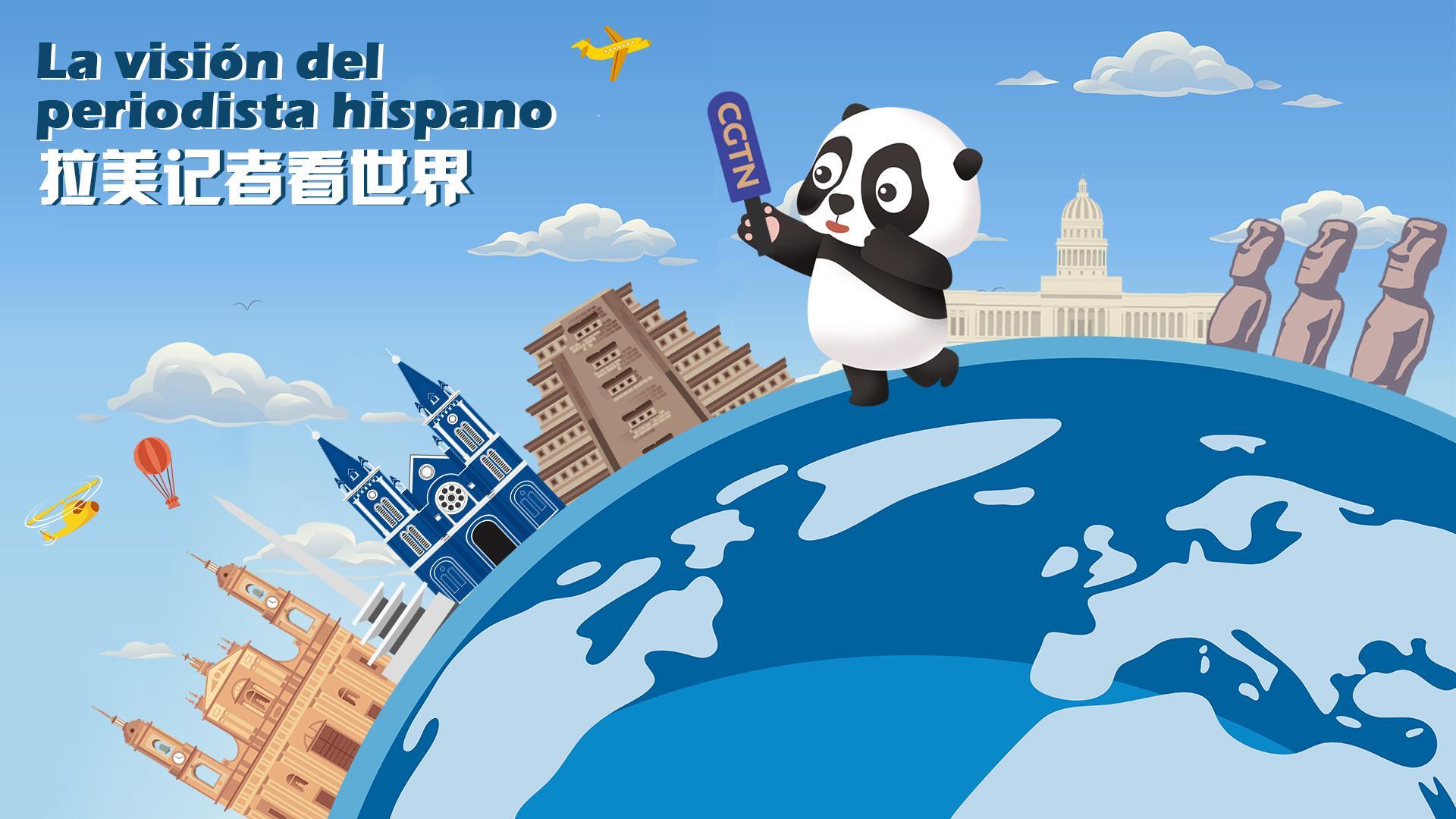
.png)




















































